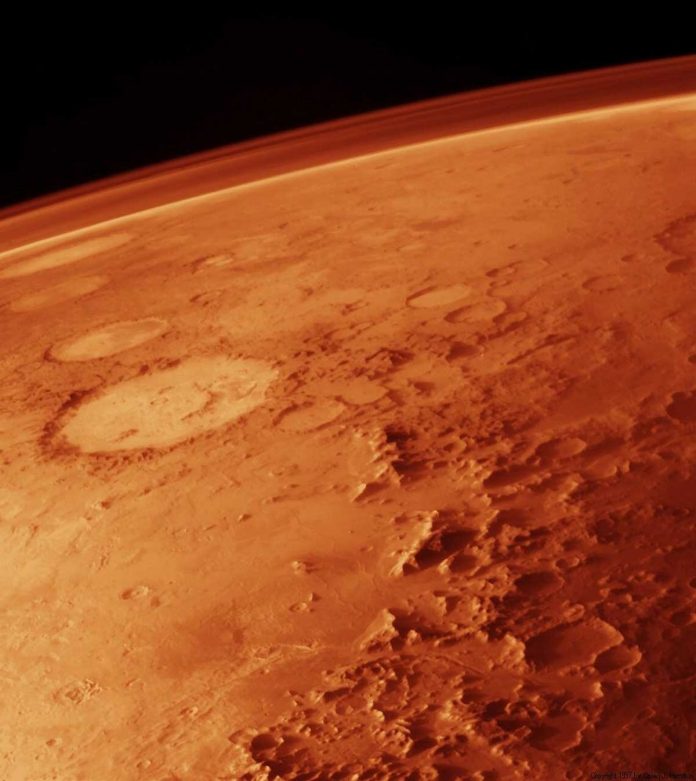Planetary scientist Erdal Yiğit of George Mason University has published a research paper in the journal Science, stating that upper atmospheric interactions with solar wind does not explain the loss of surface water on Mars. In the research paper, Yiğit suggests other three reasons that can cause the loss of surface water on Mars- gravity waves, convection and dust storms.
Planetary scientists have agreed that there was a lot of water on the surface of Mars. But billion years ago, that surface water has been lost in space in the form of hydrogen. Previously scientists have found that sunlight has torn apart in the lower Martian atmosphere and then the water becomes hydrogen and got lost into space. Yiğit suggested that there is still a lot of evidence that suggests that the loss of water was straightforward.
Yiğit also talked about other other factors in his research paper as well. Yiğit’s recent experiments has shown no evidence that the water has been carried directly into the upper atmosphere from the Martian atmosphere. Yiğit thinks the water must have been torn apart before drifting into space. New research suggests that things have happened in the lower atmosphere first and then things happened in the upper atmosphere. Yiğit thinks that the combination of low altitude convection currents and gravity waves have also influenced things to happen.
Yiğit, through his research found out that water is still evading into space from the surface of Mars. This process happens during the summer season in Mars. During summer the planet also goes through global dust storms. These dust storms have played a crucial role in circulating hydrogen into space.

